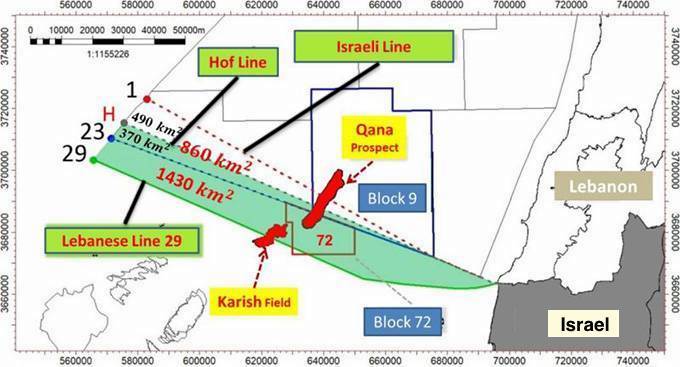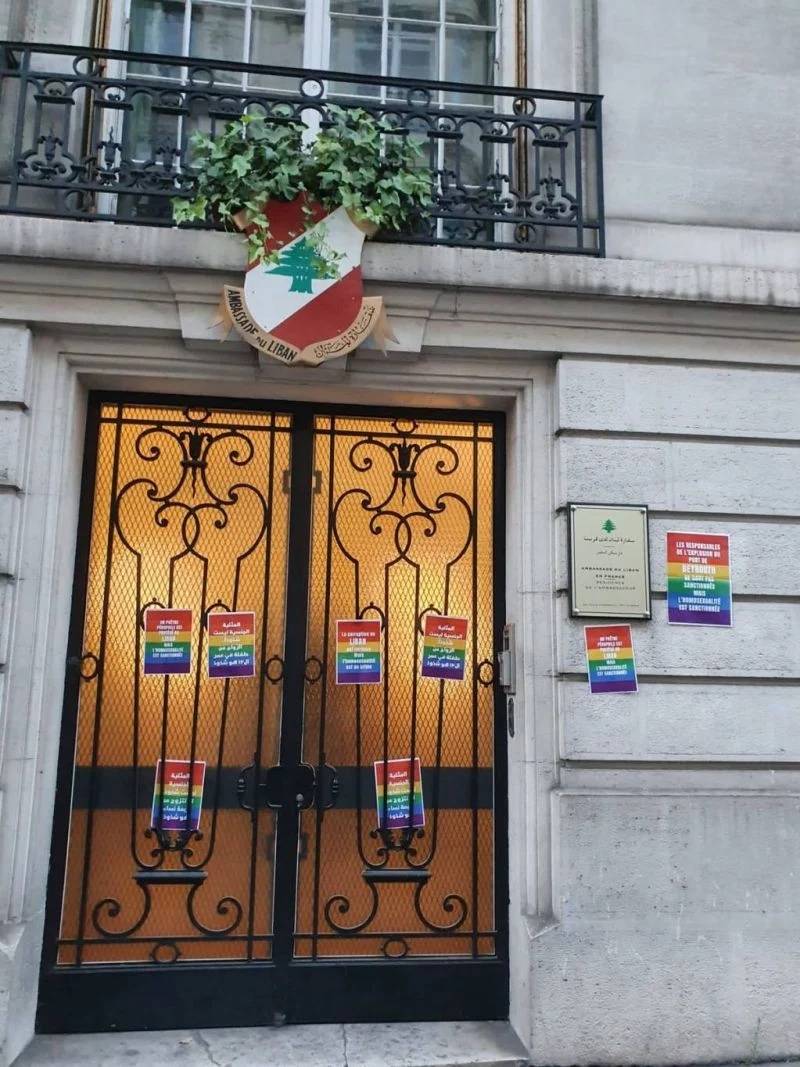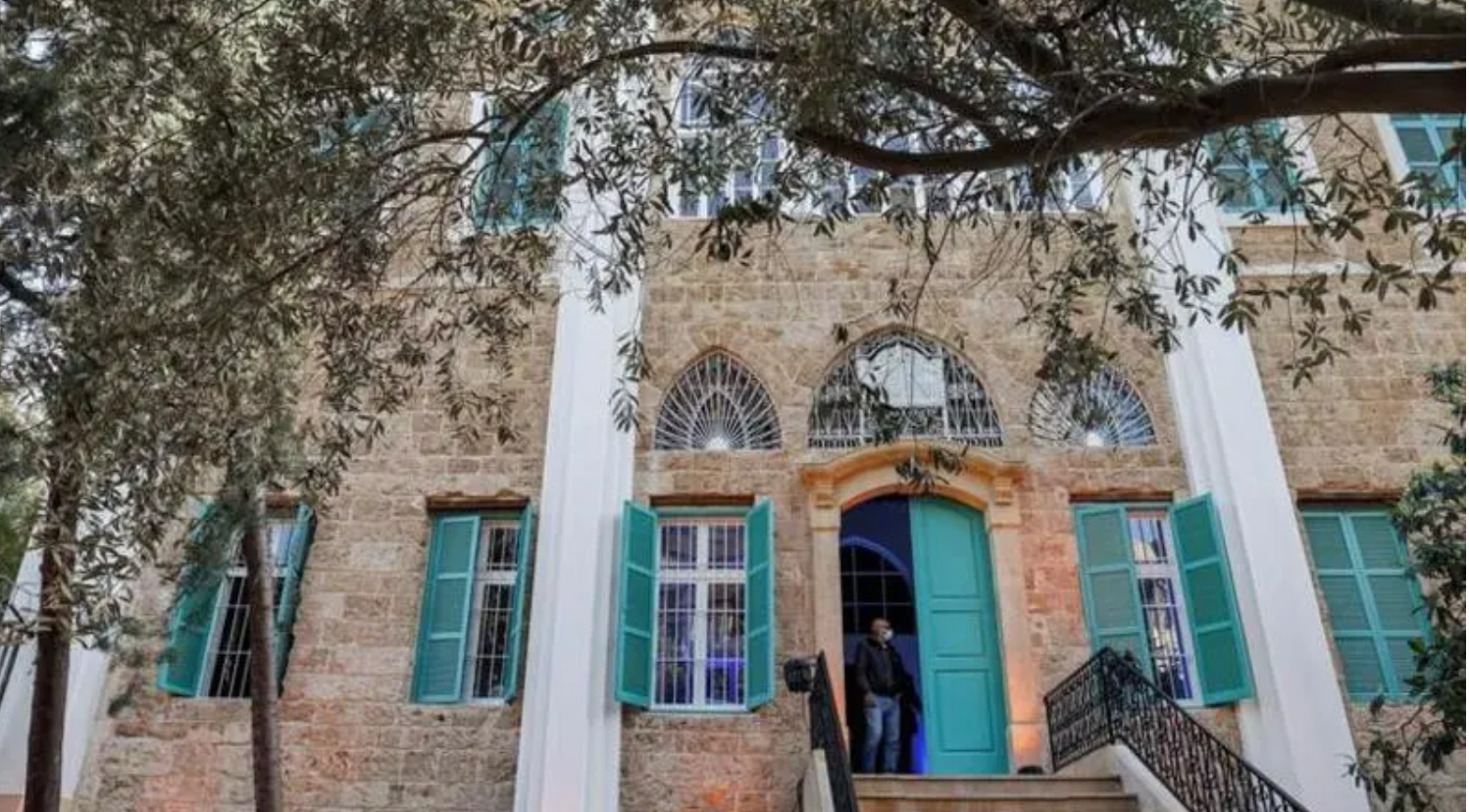by naharnet.com — The line-up submitted by PM-designate Najib Mikati to President Michel Aoun on Wednesday contained changes to five to six …

by axios.com -- Barak Ravid -- U.S. energy envoy Amos Hochstein told Israeli negotiators last week that he wanted to try to get a deal between Israel and Lebanon on the maritime border dispute in two months, two Israeli officials told Axios.
Why it matters: Hezbollah leader Hassan Nasralla has threatened to use force to prevent the Karish rig, which is located south of the disputed area and seen by Israel as a "strategic asset," from producing natural gas, which is expected to start in 10 weeks. Hochstein is concerned about a potential escalation and thinks the time left can be used as a window of opportunity when both sides will have an incentive to get a deal and avoid a flare-up, according to Israeli officials. Driving the news: Last Friday, Hochstein had a virtual meeting with the Israeli negotiations team and briefed them on the position he received from the Lebanese government during his trip to Beirut the week before.
Israeli officials told Axios Hochstein sounded upbeat about his trip to Beirut. According to the officials, he said there was progress and all main political players in Lebanon managed to get a consensus regarding the way forward. The Israeli negotiators stressed the most important thing for them is ensuring Israel’s security interests are guaranteed, Israeli officials told me. An agreement could allow Lebanon to begin natural gas exploration, which may boost its imperiled economy. What they're saying: The Israeli officials said they think two months is a possible timetable for getting a deal in principle. “We all understand the time window, and we all hope we can make progress," a senior Israeli official told me.

by today.lorientlejour.com -- BEIRUT — A heated argument took place between Lebanese ambassador Rami Adwan and Lebanese activists in France, after the latter put up rainbow-colored posters, the symbol of the LGBTQ community, on the walls of the Lebanese Embassy in France on Monday night, prompting the ambassador to face the activists, according to a video of the incident that is circulating on social media. When the activists accused Adwan of representing the Lebanese political class, as heard in the video, the ambassador said in response that this claim is “false” and that the embassy represents the Lebanese, including the activists. "You are wrong when you think that the embassy represents the ruling class and not you young man,” said the ambassador addressing an activist. And when an activist then asked him to denounce the various attacks that have taken place in Lebanon, in recent days, against the LGBTQ+ community, Adwan replied that the Lebanese Embassy does not have to express itself on whether it is for or against them. Then the situation escalated when the ambassador accused an activist of "spoiling" the embassy by sticking up flyers on its walls. Adwan then said, “You are a rotten man, you don't know how to talk to people.”
Adwan explained to L’Orient-Le Jour on Tuesday that “it is the refusal to dialogue that offended” him, adding that “the embassy makes a lot of effort to represent its community and be as open as possible. Adwan also said that what the activists did “is a bit offensive.” The tiff between the ambassador and the Lebanese came days after Lebanon's caretaker Interior Minister Bassam Mawlawi sent a letter to the General Directorate of General Security and the General Directorate of the Internal Security Forces calling on security forces to prevent gatherings that “promote sexual perversion,” referring to homosexuality. At 42 Villa Copernic, in the 16th arrondissement of Paris, the walls were plastered with colorful posters Monday night. “Those responsible for the explosion in the Port of Beirut are not sanctioned, but homosexuality is sanctioned,” the flyers read, in addition to “A pedophile priest is protected in Lebanon, but homosexuality is sanctioned.”

by aljazeera.com -- Beirut, Lebanon – Lebanon continues to reel from rampant power cuts and water shortages, as its years-long economic crisis continues. But its government is banking on a summer tourist season for a much-needed cash injection, courtesy of thousands of Lebanese working abroad who are expected to come back on holiday. This summer, Lebanon is desperate, more than ever, for its diaspora. “I am asking with all my love for our family and friends to come to Lebanon,” the caretaker tourism minister Walid Nassar said at the country’s international airport earlier this month. “They will spend money anywhere they go, but Lebanon is today in greater need.”
The tourism ministry, with funding from a number of companies, set up billboards depicting Lebanon’s beaches, rivers, ancient towns, and historical sites. An optimistic Nassar anticipates that a million tourists will arrive in Lebanon this summer, pouring up to $3.5bn into the economy. But over at Ferdinand’s, a gastropub off Beirut’s once-bustling Hamra Street, the mood is far more subdued. “You can only hear people talking about either their love life or the situation in Lebanon,” owner Riad Aboulteif told Al Jazeera.
Like hotels, cafes, and restaurants across the country, the pub gets a spike in clientele over the summer and around Christmas. “Yeah, we definitely get a minimum increase of 20 percent or so,” Aboulteif explains. “But that extra revenue doesn’t last very long.” Rampant power cuts over the past year, a more than 1000 percent increase in the price of food, and a Lebanese pound that has lost more than 90 percent of its value against the dollar in three years are just a few of the many factors that make operating a business an expensive for Aboulteif. He has recently been forced to move the pub a few blocks next to a hotel, where it can benefit from a supply of electricity to keep its lights on, and refrigerators running without interruption. “We used to pay a lot for two private generator subscriptions, so we had to eventually move,” Aboulteif said. “You can’t serve your customers spoiled goods.”
Lebanon’s lease of life
Khazen History


Historical Feature:
Churches and Monasteries of the Khazen family

St. Anthony of Padua Church in Ballouneh
Mar Abda Church in Bakaatit Kanaan
Saint Michael Church in Bkaatouta
Saint Therese Church in Qolayaat
Saint Simeon Stylites (مار سمعان العامودي) Church In Ajaltoun
Virgin Mary Church (سيدة المعونات) in Sheilé
Assumption of Mary Church in Ballouneh
1 - The sword of the Maronite Prince
2 - LES KHAZEN CONSULS DE FRANCE
3 - LES MARONITES & LES KHAZEN
4 - LES MAAN & LES KHAZEN
5 - ORIGINE DE LA FAMILLE
Population Movements to Keserwan - The Khazens and The Maans
ما جاء عن الثورة في المقاطعة الكسروانية
ثورة أهالي كسروان على المشايخ الخوازنة وأسبابها
Origins of the "Prince of Maronite" Title
Growing diversity: the Khazin sheiks and the clergy in the first decades of the 18th century
Historical Members:
Barbar Beik El Khazen [English]
Patriach Toubia Kaiss El Khazen(Biography & Life Part1 Part2) (Arabic)
Patriach Youssef Dargham El Khazen (Cont'd)
Cheikh Bishara Jafal El Khazen
Patriarch Youssef Raji El Khazen
The Martyrs Cheikh Philippe & Cheikh Farid El Khazen
Cheikh Nawfal El Khazen (Consul De France)
Cheikh Hossun El Khazen (Consul De France)
Cheikh Abou-Nawfal El Khazen (Consul De France)
Cheikh Francis Abee Nader & his son Yousef
Cheikh Abou-Kanso El Khazen (Consul De France)
Cheikh Abou Nader El Khazen
Cheikh Chafic El Khazen
Cheikh Keserwan El Khazen
Cheikh Serhal El Khazen [English]
Cheikh Rafiq El Khazen [English]
Cheikh Hanna El Khazen
Cheikha Arzi El Khazen
Marie El Khazen